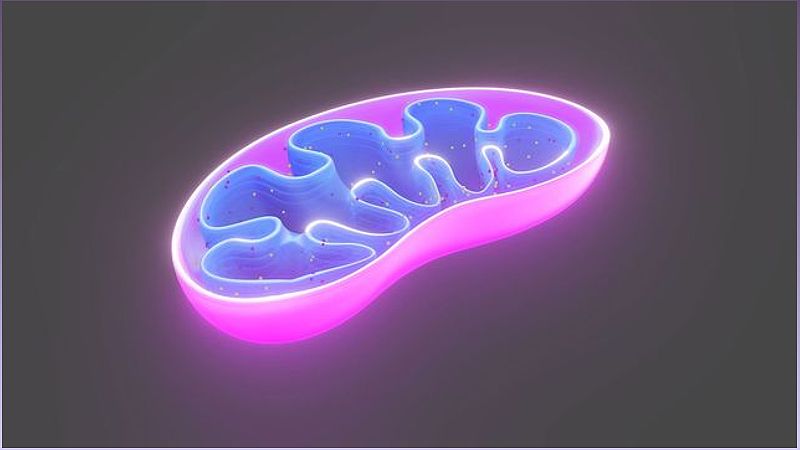In a groundbreaking study, researchers from Scripps Research have identified the malfunctioning energetic reactions in brain cells that contribute to neurodegeneration in Alzheimer's disease. By targeting these reactions with a small molecule, they were able to restore many neuron-to-neuron connections in nerve cell models derived from human Alzheimer's patient stem cells. This breakthrough suggests that improving mitochondrial metabolism could be a potential therapeutic target for Alzheimer's and related disorders. Read on to learn more about this exciting research.
Understanding the Role of Energy in Neurodegeneration
Learn how energy production in nerve cells plays a crucial role in maintaining neuronal connections and the impact of its dysfunction in Alzheimer's disease.
Energy production is vital for the survival and functioning of nerve cells in the brain. In Alzheimer's disease, however, this process is compromised, leading to the deterioration of neuronal connections and the loss of memories.
Researchers from Scripps Research have made significant progress in understanding the malfunctioning energetic reactions that contribute to neurodegeneration. By focusing on the mitochondria, the powerhouses of the cell, they have identified a block in the enzymes responsible for energy production. This dysfunction occurs specifically in the neurons of the Alzheimer's brain.
These findings highlight the importance of addressing mitochondrial metabolism as a potential therapeutic target for Alzheimer's and related disorders. By restoring energy production, it may be possible to repair lost synapses and improve cognitive function in affected individuals.
Restoring Neuronal Connections with a Small Molecule
The researchers at Scripps Research have developed a novel approach to restore neuronal connections in Alzheimer's disease. They have identified a small molecule that can target and address the malfunction in mitochondrial energy production.
Using nerve cell models derived from human Alzheimer's patient stem cells, the researchers observed promising results. The small molecule was able to restore many neuron-to-neuron connections that had been lost due to the energy deficit.
While this research is still in its early stages, it provides hope for the development of effective treatments for Alzheimer's and related disorders. By targeting the underlying cause of neuronal degeneration, it may be possible to slow down or even reverse the progression of the disease.
Identifying Deficits in Energy Production
Learn about the deficits in energy production observed in Alzheimer's nerve cells compared to healthy cells and the implications for disease progression.
One of the key findings of the research conducted by Scripps Research is the identification of deficits in energy production in Alzheimer's nerve cells.
Comparing the energy production in these cells to that of healthy cells, the researchers discovered significant differences. The Alzheimer's nerve cells exhibited lower energy production, which could explain the loss of neuronal connections and cognitive decline observed in the disease.
Understanding these deficits in energy production provides valuable insights into the mechanisms underlying Alzheimer's disease. It opens up new possibilities for therapeutic interventions aimed at improving mitochondrial metabolism and restoring neuronal connectivity.
Potential Therapeutic Target: The Mitochondrial Krebs Cycle
Explore the potential of targeting the mitochondrial Krebs cycle as a therapeutic strategy to restore neuronal connectivity and improve cognitive function in Alzheimer's patients.
The mitochondrial Krebs cycle, also known as the citric acid cycle, is a crucial part of cellular energy production. Researchers believe that targeting this cycle could be a promising therapeutic strategy for Alzheimer's disease.
By focusing on the enzymes and reactions involved in the Krebs cycle, it may be possible to restore energy production in Alzheimer's nerve cells. This, in turn, could help repair lost synapses and improve neuronal connectivity.
While more research is needed to develop effective drugs that can target the mitochondrial Krebs cycle, these findings provide a potential avenue for future treatments. By addressing the underlying energy deficits, it may be possible to slow down or halt the progression of Alzheimer's disease.

